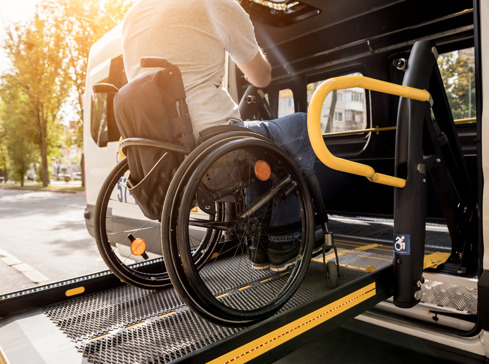Sarah Arnold, Associate in the Higgs LLP Personal Injury team, takes a candid look at an often-overlooked problem following spinal cord injury: bowel care.
A spinal cord injury (SCI) can affect many aspects of daily life, including bowel movements.
If this is the case, it’s imperative a Bowel Care Programme is put in place by your healthcare professional to help make life as comfortable as possible.
At Higgs LLP, as part of our holistic approach to our clients, we are committed to supporting and signposting people to the right rehabilitation after a SCI – as well as progressing any compensation claim as a result of negligence.
Background
The bowel is part of your digestive system and its role is to break down what you eat and drink. As the bowel fills with stools it stretches, triggering messages to bowel muscles to move the stool down to the end of the large bowel, and the rectum. When it’s socially convenient we will control our abdominal and pelvic muscles to allow us to empty the rectum to pass a stool, known as a bowel movement.
The colon is controlled mainly by nerves leaving the spinal cord at level of T6-T12 (lower thoracic vertebrae). These nerves control the movement of abdominal muscles. The lower end of the colon is controlled by nerves leaving the spinal cord lower down at level S3-S5 (sacral vertebrae).
After a SCI, the messages sent by the nerves located in your bowel are not able to reach your brain as they did before. This means you will not get the message that tells you the bowel is full and it’s time to go to the toilet. You may also be unable to move the muscle at the opening from your back passage that controls when you have a bowel movement.
The extent of loss will depend upon your level of injury and the degree of your spinal damage. Being independent in bowel care is very much dependant on the level of your SCI, your general health and how strong you are.
Bowel care following SCI is crucial for assisting with the passing of stools. Bowel care includes all techniques, manoeuvres and medications used to achieve efficient and satisfactory stool passing.
It is therefore crucial to have in place a bowel care programme and personalised plan to help you regain control of your bowel after your SCI so as to improve your quality of life.
Your bowel care programme
Your healthcare professional will assess your disability and identify your bowel function. This can be done by way of colon transit studies to provide information to confirm the speed of gut transit. The use of radiopaque capsule markers as well as an abdominal X-ray will be used.
Most importantly you will need to keep a bowel diary to record your daily bowel function. Every time you do your bowel care you will be asked to record important details such as the exact timing of your bowel habit, stool amount, consistency and colour as well as to record any problems with your bowel, such as unplanned bowel movements, abdominal cramps, pain, muscle spasms and rectal bleeding. You will also record your diet (fibre amount), your daily fluid intake, your activity level, and all the current medication you are on. All this information will help to precisely assess your bowel programme.
Factors to take into account when planning your bowel care plan:
- What you eat and drink
- Activity level
- Medications - can affect your bowel function. Painkillers and sleeping tablets will slow down bowel movements and may cause you to become constipated. On the other hand, some antibiotics will have the opposite effect.
- Timing – do you perform your bowel care in the morning or the evening to fit in with your daily life? A regular time to perform your bowel care will train your bowels and help you be more confident in your bowels and not ruled by them.
- Laxatives - you may have to take a laxative the night before to assist with bowel movement.
- Activity level - keeping as physically active as possible even when in bed for long periods. This increases abdominal muscular tone and stimulates peristalsis. If you are able, abdominal muscle exercises can help peristalsis. Being independent in daily living activities will help in providing regular exercise.
- Diet - Drinking warm liquids or eating a meal shortly before your bowel care may help to stimulate a bowel movement. Bowel emptying and stool consistency is directly related to the quantity and quality of foods eaten. What you eat and drink will affect your bowel movements. Foods that have a lot of fibre can absorb and retain liquids and help make your stool softer and easy to pass. Try to eat well-balanced meals at regular times each day.
- Drink fluids - Because fibre absorbs water, it is important to drink enough fluid. The recommendation is 2 litres of water or other liquids per day. To avoid hard stools and constipation, you need to drink plenty of fluids every day to keep your stool soft and to prevent constipation.
- Toilet position – dependant on your level of injury you may sit on a toilet or you may have your bowel routine completed in bed.
Toilet aids
- The digital removal of faeces - This method uses a finger / stimulant tool to relax and open the anal sphincters and to trigger peristalsis. This will be taught individually to suit you.
- Abdominal massage - may help move the stool through the colon to the rectum. Rubbing your hand firmly over your stomach may help to stimulate your bowel.
- Bending Helps change the position of the colon and expel stool.
- Push-ups, if possible, may help move stool into rectum.
- Valsalva technique - Can help you increase pressure around the colon to push stool out. Breathe in and try to push air out but block the air in your throat to increase the pressure in your abdomen. Try to contract your abdominal muscles as well. Use gentle Valsalva to bring stool down before and after each manual evacuation. Repeat for 30 seconds at a time on and off until all the stool is passed.
- Laxatives - medication taken by mouth used to help you have a bowel movement or to relieve constipation.
- Suppositories such as Glycerin, Bisacodyl and Carbon dioxide gas - a solid form of medication (usually small and bullet-shaped) are inserted in the rectum to stimulate a bowel movement. They have to be inserted between the stool and the rectal wall to have optimum effect when manual evacuation was incompletely successful. Suppositories act in 15 to 30 minutes. They can be taken on their own or in combination.
- An enema / catheter - a quantity of fluid infused into the rectum through a tube passed into the anus.
Whichever method you chose needs to be approved by a healthcare professional and if you’re having problems with your bowel programme you should advise your healthcare professional immediately.
Complications can include but are not limited to:
- Blood in your stool
- Change in the colour of your stool if it becomes lighter, red, or black.
- constipation, and prolonged bowel care (lasting more than 1 hour).
- Chronic diarrhoea (more than three weeks) and unplanned evacuation
- Pressure sores
- Piles
- Too much gas or a bloated feeling.
If you or your loved ones have been unfortunate to suffer a spinal cord injury as a result of an accident then our specialist team at Higgs can assist you in bringing a compensation claim and securing the best rehabilitation and care plan needed.




